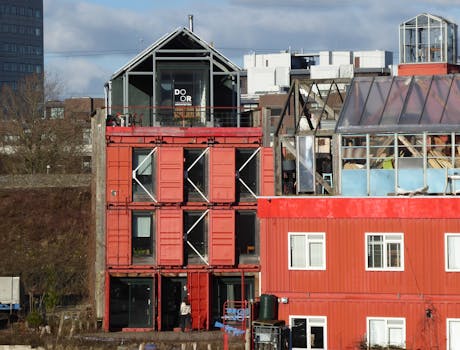
Sustainable Cities: How Europe is Shaping Eco-Friendly Lifestyles by 2025
Sustainable Cities are becoming increasingly important as the world grapples with the challenges of climate change, urbanization, and environmental degradation. Sustainable Cities are at the forefront of this movement, with many European cities leading the way in innovative solutions and eco-friendly policies. In this article, we will explore how Europe is shaping eco-friendly lifestyles by 2025.
Introduction to Sustainable Cities
Sustainable cities are designed to minimize their impact on the environment, while also providing a high quality of life for their citizens. This is achieved through a range of initiatives, including renewable energy, green transportation, and sustainable waste management. European cities such as Copenhagen, Stockholm, and Vienna are already recognized as leaders in sustainable urban development.
Key Initiatives in European Sustainable Cities
There are several key initiatives that are being implemented in European sustainable cities. These include:
- Renewable Energy: Many European cities are investing heavily in renewable energy sources, such as wind and solar power. For example, Copenhagen aims to be carbon neutral by 2025, and is investing in offshore wind farms to achieve this goal.
- Green Transportation: European cities are also investing in green transportation, such as electric and hybrid buses, and promoting cycling and walking. For example, Stockholm has implemented a congestion tax to reduce traffic congestion and encourage the use of public transportation.
- Sustainable Waste Management: European cities are also implementing sustainable waste management practices, such as recycling and composting. For example, Vienna has implemented a city-wide recycling program, and has reduced its waste sent to landfill by 50%.
Benefits of Sustainable Cities
There are many benefits to sustainable cities, including:
- Improved Air Quality: Sustainable cities have improved air quality, which can reduce the risk of respiratory diseases and other health problems.
- Reduced Greenhouse Gas Emissions: Sustainable cities can reduce greenhouse gas emissions, which can help to combat climate change.
- Increased Quality of Life: Sustainable cities can provide a high quality of life for their citizens, with access to green spaces, clean air and water, and a range of cultural and recreational activities.
Conclusion
In conclusion, European cities are leading the way in sustainable urban development, with innovative solutions and eco-friendly policies shaping the future of urban development. By 2025, many European cities aim to be carbon neutral, and are investing in renewable energy, green transportation, and sustainable waste management to achieve this goal. As the world continues to urbanize, it is essential that we learn from the examples of these sustainable cities, and work towards creating a more sustainable future for all.




